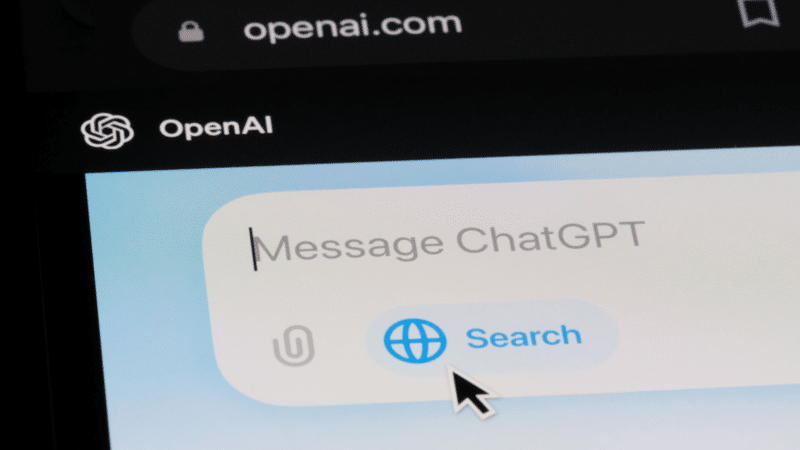
sel logo
Search Engine Land » SEO »
Chat with SearchBot
The SEO landscape is changing fast and AI search is leading the charge.
With ChatGPT’s new search functionality posing a serious challenge to Google, how content is ranked and discovered is being redefined.
ChatGPT search doesn’t just display links. It analyzes 12 results to generate answers, creating a new playing field for content creators.
Let’s explore what ChatGPT search means for your content strategy, how it compares to Google and how you can adapt to rank at the top.
Initially, many thought ChatGPT search would directly pull results from a single search engine, summarizing and returning results to the user, but this isn’t the case.
Just look at each search engine’s results for the search query [best ebike 2024].
Google:
Bing:
ChatGPT search:
Although there is some overlap in results, the overall ranking doesn’t align.
In terms of similarity, ChatGPT search results appear closer to Bing’s. That’s because ChatGPT search uses Bing’s search index while customizing the trusted media sources it draws from.
When I searched for [long range ebike] in ChatGPT, I expected our brand to appear in the results, especially since we had ranked in the top 3 for this keyword on Google.
However, despite our high Google ranking, our site was not referenced.
The good news? No other brands were referenced either – not one.
Instead, ChatGPT search consistently pulls from list-style, long-form articles, summarizing information from three main sources:
These sources share the following characteristics:
ChatGPT search doesn’t seem to trust promotional claims from brand sites but instead relies on detailed long-form content from authoritative media.
Collaborate with trusted niche and authoritative media outlets to secure honest reviews and get your products featured in their ranking lists.
Dig deeper: ChatGPT search: Does it deserve the fanfare?
Get the newsletter search marketers rely on.
See terms.
If you operate a local business, there’s great potential here.
For local queries like “best restaurants in London,” ChatGPT does not display ads. It simply ranks the top businesses based on factors like reviews and location.
If you perform a similar search on Google, you’ll likely see this type of result:
In ChatGPT search, however, the results look like this:
For these localized searches, Google Maps’ importance is highlighted.
ChatGPT searched through 12 results but referenced none – it only displayed Google Maps.
Local brands focusing on Google Maps rankings and maintaining positive reviews will see this advantage amplified in ChatGPT search.
To rank well in local searches, you need numerous authentic, positive Google reviews. This is key to reaching the top.
ChatGPT search doesn’t display ads, so all content shown is purely organic.
This is ideal for businesses relying on organic rankings. This also benefits SEOs by simplifying the path to pure organic traffic.
However, ChatGPT doesn’t drive website clicks. Users turning to ChatGPT search likely want to avoid Google’s click-and-filter experience and are looking for direct answers.
For brands, optimizing for ChatGPT means focusing on brand mentions and accurately conveying brand value.
The goal isn’t traffic but maximizing exposure and offering real solutions.
For instance, a search for [best ebike brand 2024] might feature your brand along with reasons for the recommendation. It would be as if ChatGPT is promoting your brand directly.
When users trust ChatGPT, they also trust your brand. It’s comparable to receiving an endorsement from an authoritative media source.
ChatGPT search presents both challenges and opportunities for SEOs. If you think AI search will gradually reduce Google’s market share, it’s smart to start paying attention and positioning your brand accordingly.
Dig deeper: How to implement generative engine optimization (GEO) strategies
Contributing authors are invited to create content for Search Engine Land and are chosen for their expertise and contribution to the search community. Our contributors work under the oversight of the editorial staff and contributions are checked for quality and relevance to our readers. The opinions they express are their own.
Related stories
New on Search Engine Land
About the author
Related topics
Get the newsletter search marketers rely on.
See terms.
Learn actionable search marketing tactics that can help you drive more traffic, leads, and revenue.
Available on-demand: SMX Next
Available on-demand: SMX Advanced
Available on-demand: SMX Master Classes
Discover time-saving technologies and actionable tactics that can help you overcome crucial marketing challenges.
April 15-17, 2020: San Jose
Free 14 day Semrush trial
Get 55+ tools to gain insights and grow your audience.
Your Guide to Reporting and Measurement on Connected TV
Elevate Your Data Strategy: From Cookies to Universal Consent & Preferences
The 40% Shift: How AI is Radically Reshaping Marketing Budgets
Enterprise SEO Platforms: A Marketer’s Guide
Email Marketing Platforms: A Marketer’s Guide
Customer Data Platforms: A Marketer’s Guide
Data-Driven Strategies for Retail Success
Meet your new AI-powered marketing assistant!
Get the newsletter search marketers rely on.
Topics
Our events
Semrush
About
Follow us
© 2024 Search Engine Land is a Trademark of Semrush Inc.
Third Door Media operates business-to-business media properties and produces events, including SMX. It is the publisher of Search Engine Land, the leading digital publication covering the latest search engine optimization (SEO) and pay-per-click (PPC) marketing news, trends and advice. The company headquarters is 800 Boylston Street, Suite 2475, Boston, MA USA 02199.
